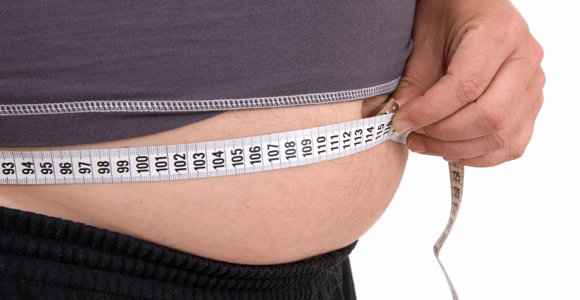The idea that you can be healthy at any weight is alluring, especially for those who'd rather live with a wide waistline than utter the word "diet." But as the latest research from Canada suggests, obesity may increase the risk of dying--even without any of the usual markers of poor health.
In days past, doctors might reasonably issue a clean bill of health to patients of all sizes as long as they had normal blood pressure, cholesterol and blood-sugar levels. But if the new findings are any indication, those days may be over.
The Study
The report, which was published in the Annals of Internal Medicine, includes data from eight separate studies that lasted at least a decade each. Of the 61,000 adult participants, nine percent were obese but had no symptoms of metabolic syndrome, meaning they showed no heart disease or diabetes risk. Despite their apparent good health, this group still had a 24 percent greater chance of stroke, heart attack or death compared to people at a normal weight.
"The message here is pretty clear," lead author Dr. Caroline K. Kramer told The New York Times. "The results are very consistent. It's not OK to be obese. There is no such thing as healthy obesity."
Of course, this doesn't mean that thin people are off the hook completely--high cholesterol, blood pressure and blood sugar all increase risk of cardiovascular disease and death regardless of weight. However, the same solutions for weight loss, such as exercising and eating a reduced-fat, low-sugar diet, also tend to reduce these symptoms.
What this Means
In the United States, about 36 percent of adults over the age of 20 are obese, according to the Centers for Disease Control and Prevention. The easiest way to find out if you might be one of them is to check your BMI, which is a formula that factors height and weight to measure body mass. Online BMI calculators are plentiful on the Internet, and the system is accurate to a point.
What your BMI can't tell you, however, is how much of your weight comes from fat. And because obesity is actually measured in body fat, not size, you could be obese with a healthy BMI, and vice-versa. Bodybuilders, for example, may be heavier than non-exercisers but have more muscle than fat. Therefore, they may have a high BMI but are not really obese.
The best way to find out if you're in the obese category is to see a doctor for a body-fat test. Don't rely on calipers, fancy bathroom scales or handheld electronic sensors, which are often inaccurate.
The good news is that if you are obese, you can protect your health and lose weight with some sensible lifestyle changes. Estimate how many calories you burn per day (the average woman burns 2,000 while the average man burns 2,500), and consume 500 fewer calories daily to lose one pound per week without suffering. Pair your diet with regular exercise and you'll lose even more weight.
How Many Calories are You Really Eating?
Nina Kate is a certified fitness nutrition specialist through the National Academy of Sports Medicine (NASM). She also studied journalism at the University of California, Los Angeles (UCLA), and has contributed to numerous major publications as a freelance writer. Nina thrives on sharing nutrition and fitness knowledge to help readers lead healthy, active lives. Visit her wellness blog at BodyFlourish.com.




